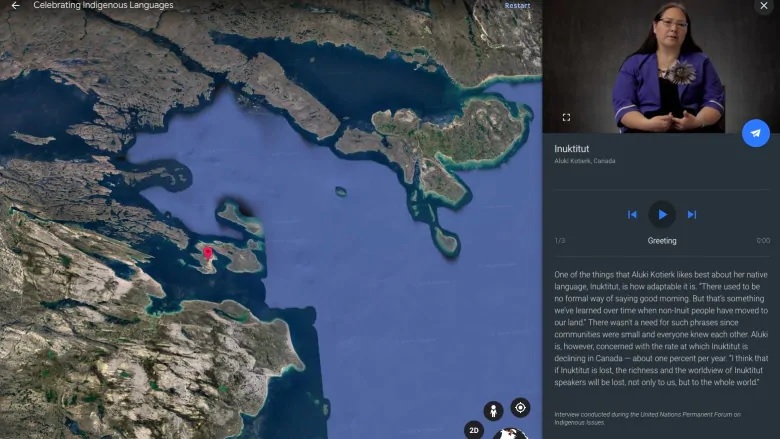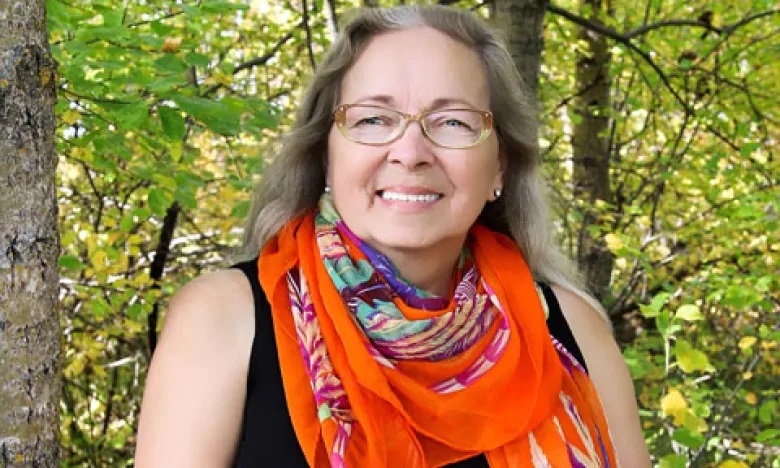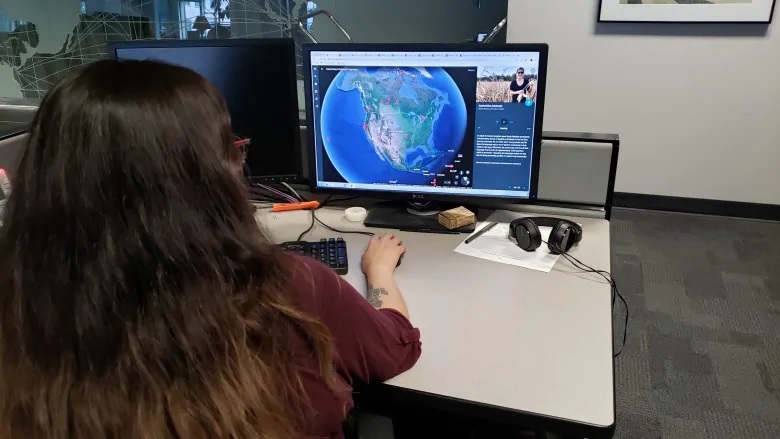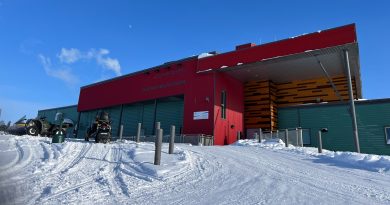Hear Indigenous language speakers from around the globe through Google Earth

Users of Google Earth are now able to hear over 50 Indigenous language speakers from across the globe saying words and simple phrases and even singing traditional songs.
The project, called Celebrating Indigenous Languages, is designed to honour the United Nations International Year of Indigenous Languages.
For Indigenous people, language is a lifeline to culture.
“It’s my identity. It’s who I am as a person,” said Dolores Greyeyes Sand, a Plains Cree language teacher from Saskatchewan who contributed to the project.
Sand’s mother was Cree language scholar Freda Ahenakew. Before Sand went to school, she spoke only Cree.
“Our language is so important because our culture is within that language, and in order to maintain our culture as Cree people we need that language,” said Sand.
She said being part of Google Earth’s project is an honour because it will serve her grandchildren and their grandchildren to come.

“It lets the world know that yes, we’re here and we have our own ways, language, culture, traditions and world view which are as valid as any other language group in the world.”
When users visit Google Earth, they will be able to select locations chosen by the speakers featured in each area.
During the process of collecting interviews and samples of the languages, each speaker was asked to think of a place that was important to them and their family.
For some this was the community they grew up in. For others like Sand, the place was special because of family gatherings and memories.
Sand chose Crown Hill near Muskeg Lake Cree Nation, where for five generations her family has been tobogganing every New Year’s Eve, completing the night with fireworks at midnight.
Other languages featured include Hul’q’umi’num, Kanien’kéha (Mohawk), Inuktitut, Northern Plains Cree, Woodlands Cree and Swampy Cree.
Available in Voyager on Google Earth
The project can be found in Voyager on Google Earth, an educational storytelling platform.
“We’ve seen lots of people using maps to do things like preserve traditional place names,” said Raleigh Seamster, senior program manager with Google Earth Outreach.
While there are almost 7,000 Indigenous languages worldwide, this project features only 50 so far, but Seamster said there’s hope the project will grow if more people are interested in adding their own languages.

“We really wanted to celebrate these language speakers, raise awareness about how Indigenous languages contribute to global language diversity around the world and inspire our users to learn about these languages and maybe even go beyond that and find out the Indigenous languages that are spoken in the areas where they live,” she said.
Brian Thom, a cultural anthropologist at the University of Victoria who worked with Google on the project, said he hopes it helps the public learn that Indigenous languages need to be valued and protected.
“We need to do everything we can to ensure that they’re vibrant into the 21st century and growing beyond,” he said.
Users will also be able to learn more about organizations that are working to preserve languages and how they can support them locally.
Related stories from around the North:
Canada: Inuit languages declining in Canada’s Nunavut territory, stats show, CBC News
Finland: Budget cuts threaten international Sámi language cooperation, Yle News
Sweden: Calls for more Indigenous protection in Sweden on Sami national day, Radio Sweden
United States: Indigenous leaders at UN meeting push for decade dedicated to language revitalization, CBC News



